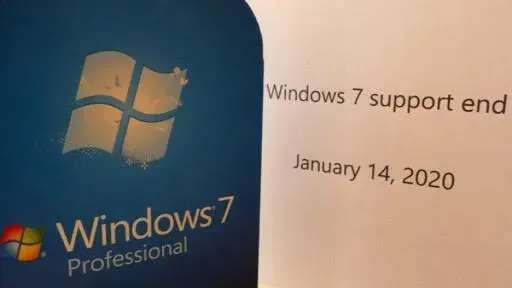The fact that Windows 7 has reached the end of its official support from Microsoft is something that is impacting millions of individuals and businesses around the world. While the operating system will continue to work in just the same way that it always has, customers will not be able to get assistance from the Microsoft team any longer. In addition, patches will not be released, which leaves computers running it vulnerable to many viruses, malware, and other problems.
Professional web hosting is not run on Windows 7, so that will help to minimize the impact that this will have on any given website. Windows hosting is quite common but runs on an operating system known as Windows Server. This particular type of Windows is designed specifically to operate as a server rather than an end-user device. Despite this, however, the end of support will have indirect impacts on hosting, so it is important to take some time to learn more about it.
At-Risk PCs Put Your Website in Danger
Viruses and malware are major hazards for all computer systems. Bad actors who develop these things love looking for exploits and other vulnerabilities in operating systems. The fact that Windows 7 is no longer supported and no longer receiving security patches means that it has become a major target for hackers.
If your computer that is running Windows 7 becomes infected with any type of hazardous software, it may be able to pass that problem on to your web server. While high-quality web hosting such as ours here at Verpex offers great security and anti-virus protection, the PC should always be seen as the first line of defense. When a computer can no longer be protected because it is significantly out of date, websites are much more likely to be compromised.
Keeping your computer up to date with a modern, supported operating system will help to reduce the risks of your website getting infected. This is critical for the protection of yourself and your visitors. If a website does get infected with a virus and visitors find out about it, they are not likely to want to come back ever again, even after the virus problem is solved.
Compatibility Issues
Those who run websites know that quite a bit of the work that is done is performed on their PC and then uploaded to the webserver. This is true of creating content, doing research, coding pages, and much more. Even if you are directly interacting with your web server, the chances are that it is done on a browser that has been installed locally.
Since Windows 7 is no longer supported, software developers of all types will stop putting in the effort to ensure their programs work on Windows 7. This means over time; it will become more and more difficult to interact with your web server if you remain on Windows 7. In addition, the browser versions you have to run will begin having more bugs and issues, which will make your experience maintaining your site much more challenging.
Testing Becomes a Challenge
Whenever updating a website it is a good idea to run a series of tests to make sure it performs as expected. This means accessing and navigating your website using a variety of different browsers, operating systems, and other configurations. When you are running a severely outdated version of the Windows operating system, you will have fewer options when it comes to testing your site. This could result in having an unreliable or poorly performing site and not being aware of it for a long period of time.
What to Do if You’re Still Running Windows 7
If you are one of the millions of people who still run Windows 7, the best thing you can do is upgrade to Windows 10 as soon as you are able. Windows 10 has been out for several years now, and while it had some problems when it was first released, it currently runs very nicely. It is even possible to get legal and valid copies of Windows 10 free of charge using an ongoing program offered by Microsoft to help bring on new users. This free program may not last forever though, so make sure to upgrade soon.




















